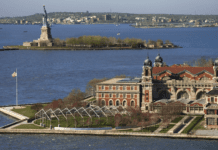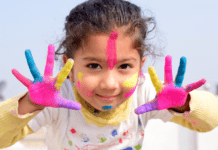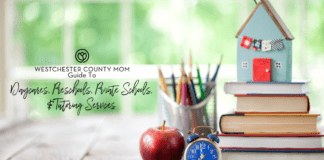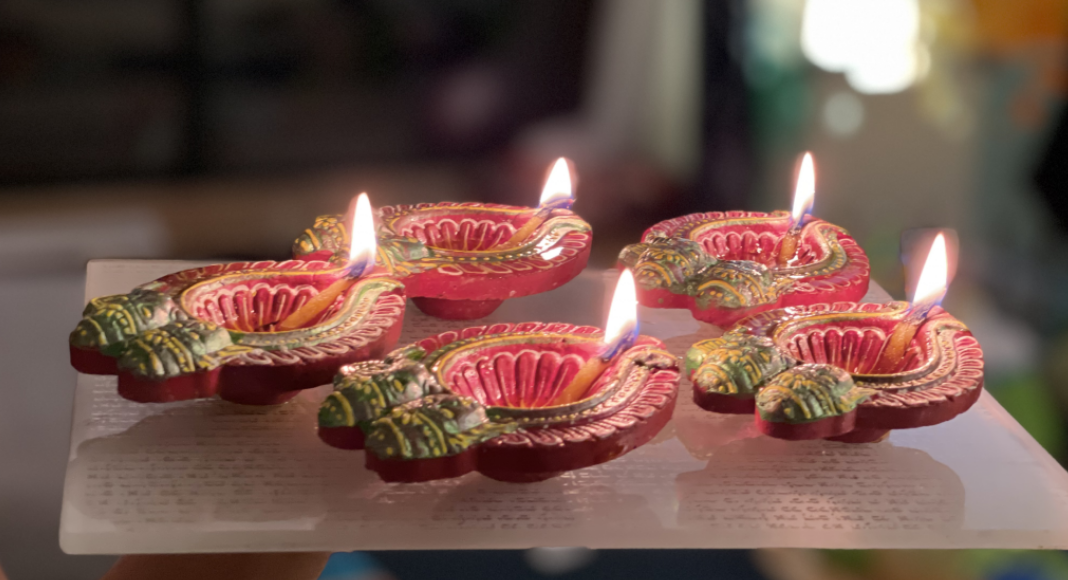 Diwali, also known as the “festival of lights,” is the biggest Indian festival. It’s Christmas, Hanukkah, and Thanksgiving all rolled into one 5-day long saga of amazing food, fireworks, family time, and fun. I was born and brought up in Delhi, and for as long as I can remember, Diwali was the most exciting time of year. Houses were adorned with colorful lanterns, and clay lamps called “diyas” lit up the streets and corridors. Festivities were in the air! Communities and families came together to celebrate this festival which signifies the victory of good over evil.
Diwali, also known as the “festival of lights,” is the biggest Indian festival. It’s Christmas, Hanukkah, and Thanksgiving all rolled into one 5-day long saga of amazing food, fireworks, family time, and fun. I was born and brought up in Delhi, and for as long as I can remember, Diwali was the most exciting time of year. Houses were adorned with colorful lanterns, and clay lamps called “diyas” lit up the streets and corridors. Festivities were in the air! Communities and families came together to celebrate this festival which signifies the victory of good over evil.
I came to the United States in 2007 as a graduate student. Living in a small suburban town in Texas, my first Diwali in the US was rough. I sat in my one-bedroom apartment (with three other international students), looking through some old family pictures as the cloudy fall day ended in the quiet darkness.
I felt lonely, missed my family, and longed for community.
With time, as the culture shock receded and I found my bearings financially and professionally, I discovered that there were “little pockets of India” scattered across the United States. This was where immigrants got together to celebrate this festival that reminded them of home.
After moving to NY and meeting many other Indians, I found “temples” and prayer halls to visit on Diwali. There were Indian food festivals, Indian dance parties, and even fireworks on the Hudson! Public celebrations were held in Disneyland and Times Square with performers dancing and thousands of people in attendance. For a couple of years, I thought I had rediscovered Diwali.
But as the years went by, the rituals and sentiments of Diwali started to wear off. The grind of daily life took over, and I struggled to celebrate a day that was special to me but not celebrated in my immediate community. I also realized that Diwali was about the nostalgia of childhood and the warmth of being with the family.
I missed the fragrance of incense in the air and the sweet smell of my mom’s cooking on Diwali mornings. Visiting a prayer hall where I didn’t know anyone, dancing in a nightclub to the tunes of remix Bollywood songs, or eating an expensive Indian meal (even though it was delicious) didn’t feel like Diwali to me. So, I quietly (and subconsciously) tucked away this beloved festival in my heart. Diwali became a cherished memory rather than a yearly celebration.
Since my baby was born in the past year, I started to reevaluate my outlook towards Indian traditions. My baby is an Indian-American but has never been to India (thanks for nothing, COVID). As he grows up and starts to understand that his parents are “Indian,” what will it mean to him? How will he perceive and understand his heritage?
Traditions and rituals are very important parts of the human experience, and these are very often embedded in religious or cultural celebrations. Festivals like Diwali and their traditions often provide scaffolds from which children experience the depth of their heritage.
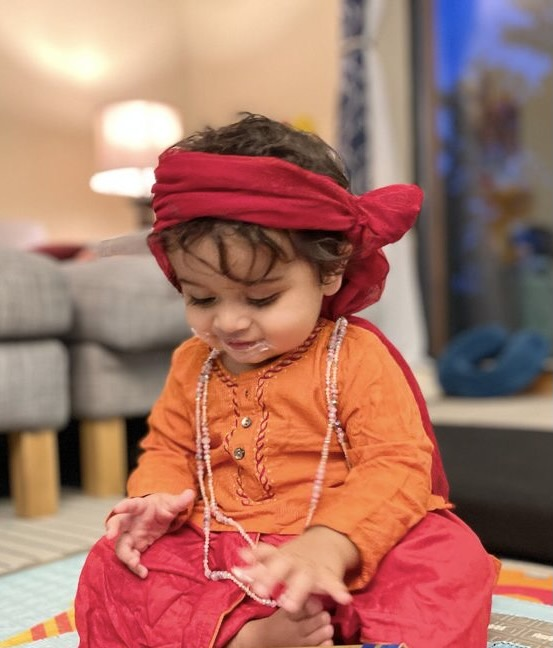

So, this year, I decided to revive Diwali and bring back the festivities! I decorated our home in vibrant colors, lined our terrace floor with “Diyas,” dressed up in traditional Indian clothes, and recited the story of the victory of good over evil. I even tried to cook a traditional Indian dessert for my baby (lucky for me, he has no reference to compare it to).













